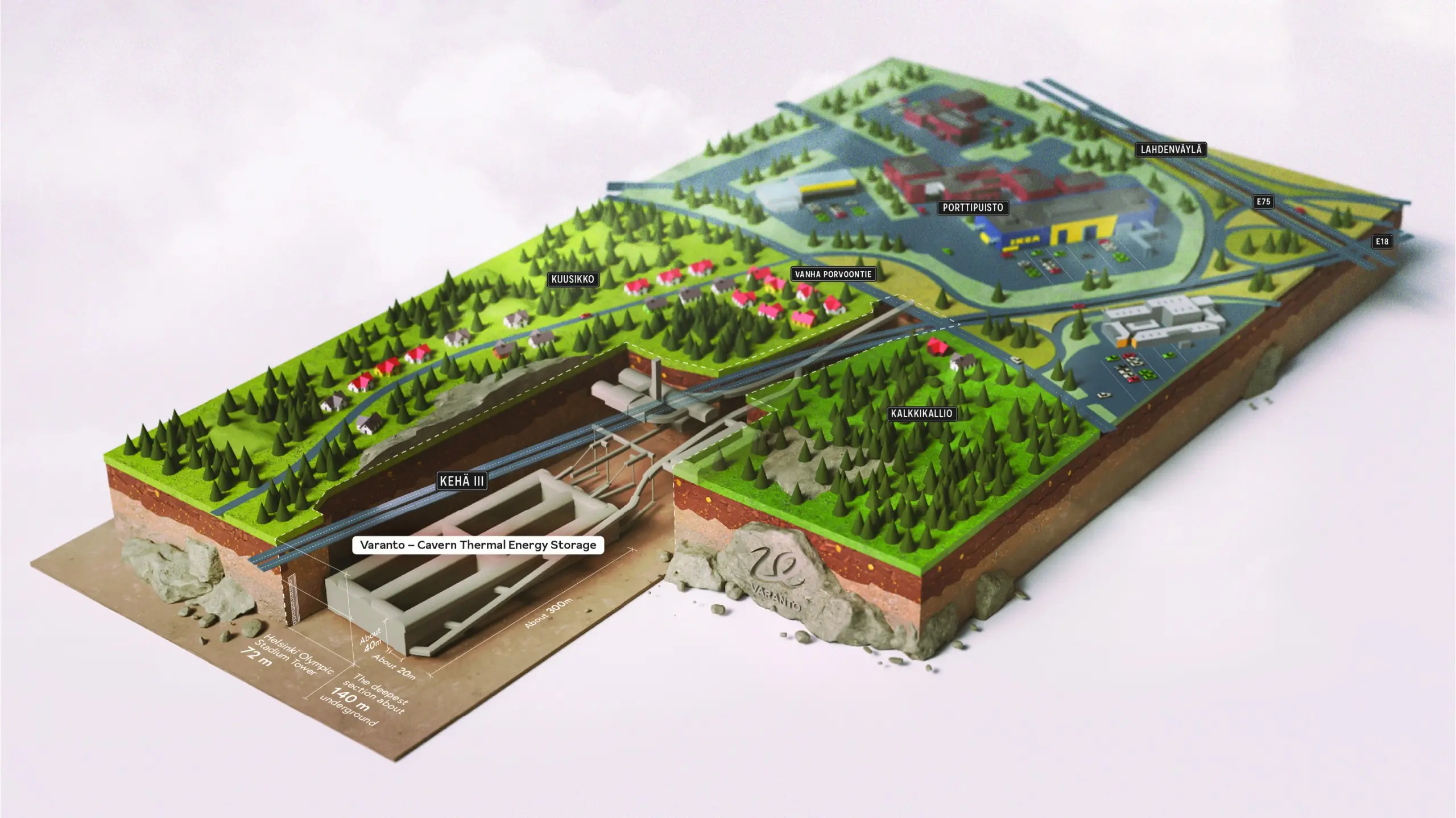- cross-posted to:
- climate@slrpnk.net
- collapse
- cross-posted to:
- climate@slrpnk.net
- collapse
A seasonal thermal energy storage will be built in Vantaa, which is Finland’s fourth largest city neighboring the capital of Helsinki.
The total thermal capacity of the fully charged seasonal thermal energy storage is 90 gigawatt-hours. This capacity could heat a medium-sized Finnish city for as long as a year. Broken down into smaller energy units, this amount of energy is equivalent to, for example, 1.3 million electric car batteries.
The project cost is estimated to be around 200 million euros, and it has already been awarded a 19-million-euro investment grant from Finland’s Ministry of Economic Affairs and Employment. Construction of the storage facility’s entrance is expected to start in summer 2024. The seasonal thermal energy storage facility could be operational in 2028.



Part of the reason this is even worth doing is that they already have the district heating infrastructure in place to pipe the hot water out to buildings to be used for heat. This storage system is basically an add-on to that infrastructure.
So if you have a city that already has such a hot water piping network in place and has nearby
natural cavesbedrock that can be easily accessed and used in this way, then the cost of implementation is low.If you don’t have the heat piping infrastructure then it’s a heavy lift to retofit it into all the existing buildings. Doable, but it will take a lot of time and resources.
If you don’t have the caves then this is just a non-starter.*edit: So I got that wrong, they’re apparently going to be digging (or blasting?) new holes into bedrock for the water storage. I guess you could do this anywhere where there was bedrock relatively close to ground level (I’m not a geologist, I assume it would depend somewhat on the type of rock).
I’m curious how they’re going to make building-sized holes in the rock relatively cheaply. Typically every kind of earthmoving is expensive. If we’re talking granite with an average density of 2.7 g/cm3 (2700 kg/m3) then they plan to move 3 billion kg (3 million metric tons) of rock.
I understand. Here we do have heating delivered by heating pipes. Heat comes from local energy plants.
We dont have caves though but storing heat underground should be doable i assume
It just feels silly to spend money on not making electricity instead of spending money on storing even just some of it in any kind of energy form.
My theory is that energy is still seen at as a resource instead of a flow. We won’t run out of wind energy. We will only get more and more of it. We shouldn’t care quite as much on how effectively we can convert or store it imo
It’s not that, it’s storing the excess energy and converting it to heat, and that heat is then transferred to homes and thus reducing the use of electricity in the winter. Most of the electricity usage of Finland is in heating during winter. So using excess to store heat is a great idea, and using existing infrastructure to boot.
Great!
So instead of paying money to turn off electricity generation when its cheapest, why not simply generate heat and store it in a similar way during those periods?